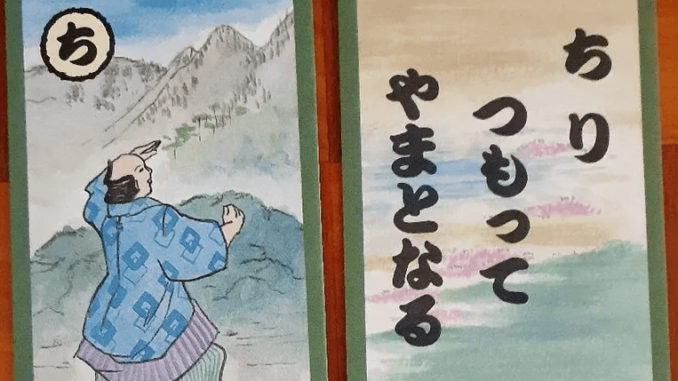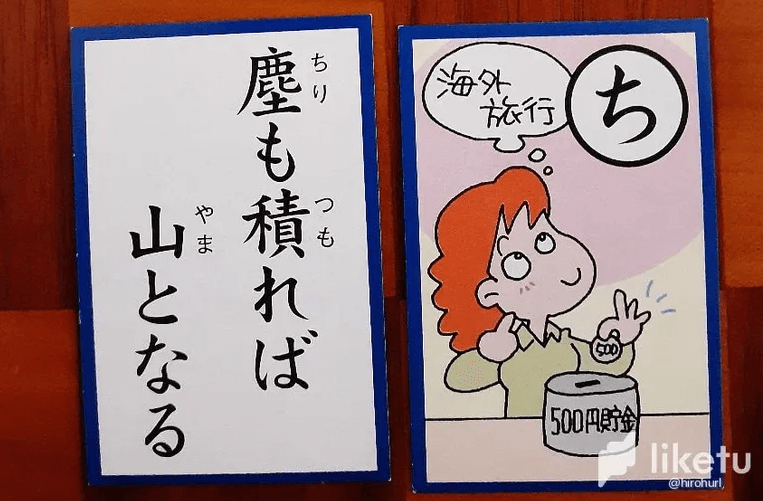
The 8th syllable in the old Japanese “iroha syllabry” is pronounced “chi,” and written: “ち”. Chi is therefore the initial sound of the eighth proverb in the “Iroha Karuta” card deck.
Here’s the proverb in Japanese:
Chiri tsumotte yama to naru
Chiri is “dust” and “yama” is “mountain.”
“Tsumotte” is a form of the verb “accumulate” or “pile up” and “to naru” means “will become.”
This proverb does not provide any particular challenge for the translator and can be rendered as:
“Dust piled up becomes a mountain”
However, translators often render it as “Even dust piled up can become a mountain.”
Origins of the Proverb
The proverb is said to originate in a Buddhist treatise called Daichido-ron, which Wikipedia informs us is “an encyclopedic compendium or summa of Mahayana Buddhist doctrine,” and is in turn a commentary on The Sūtra of Transcendental Wisdom in Twenty-five Thousand Lines.
The proverb found its way out of the treatise and into the Iroha Karuta sometime during the Edo era in Japan, which lasted from 1603 until the Meiji Restoration of 1868.
Interpretation
Though one grain of dust may of itself be little, if you keep on piling up those little mites you’ll eventually have a “mickle” – or a “great amount”: “Many a little makes a mickle,” as the old English proverb puts it.
In the Daiso cartoon version of the card a young lady is dreaming of going on an overseas trip as she drops a 500 yen coin into a money box. A 500 yen coin is worth around $3.50, but if she keeps on accumulating her spare 500 yen coins she’ll eventually have enough mula saved up to pay for her trip.
Cheers!
David Hurley
#InspiredFocus

